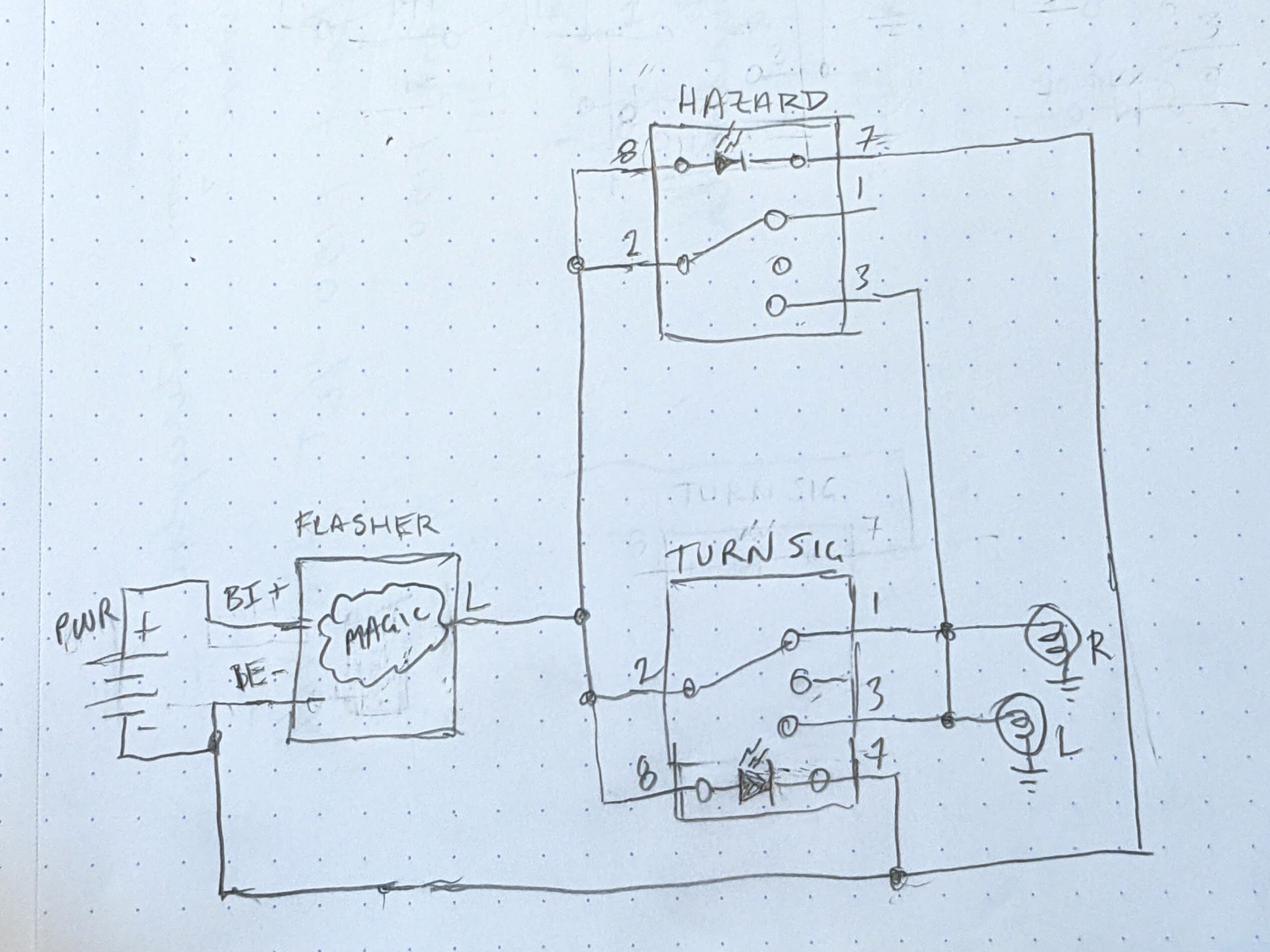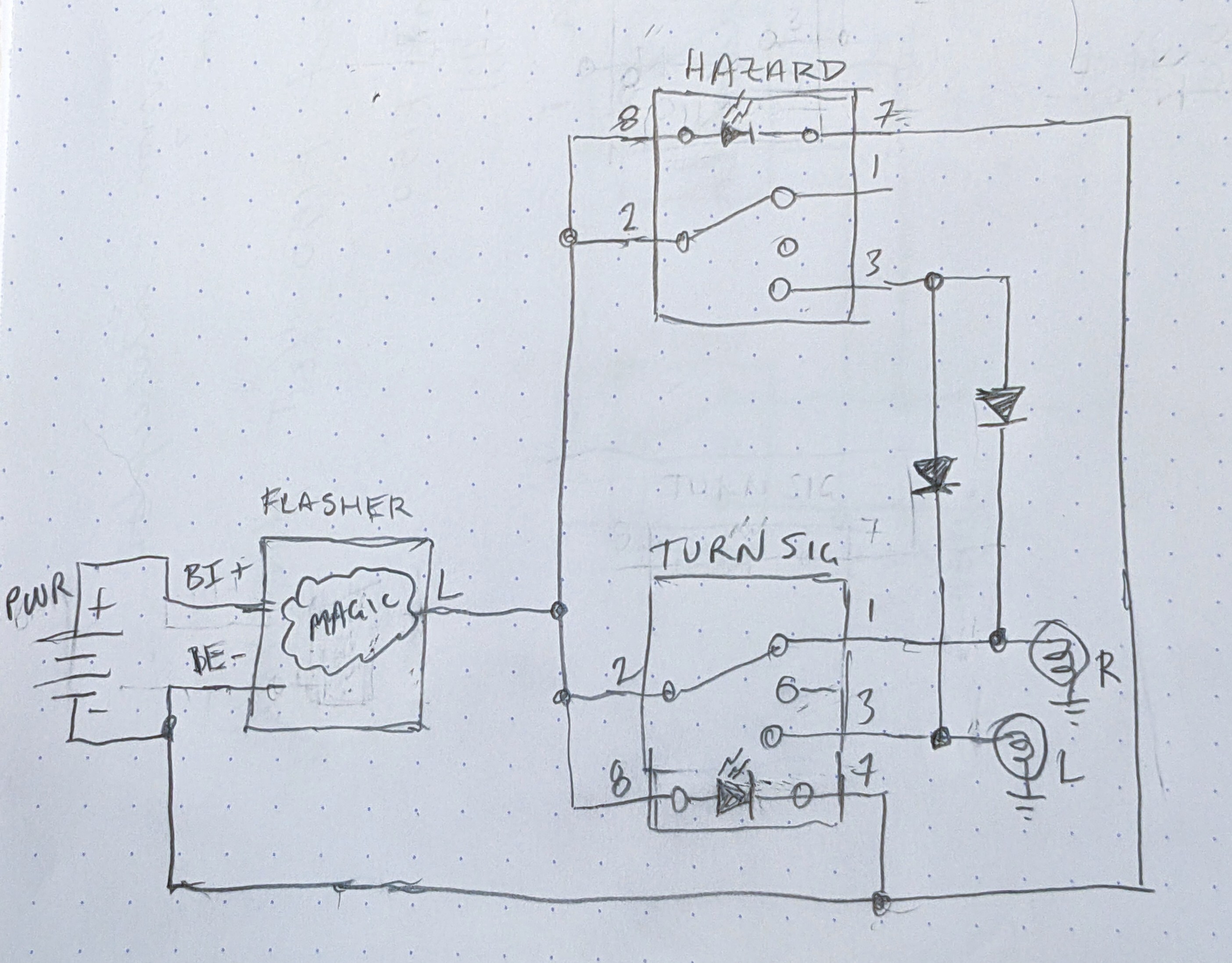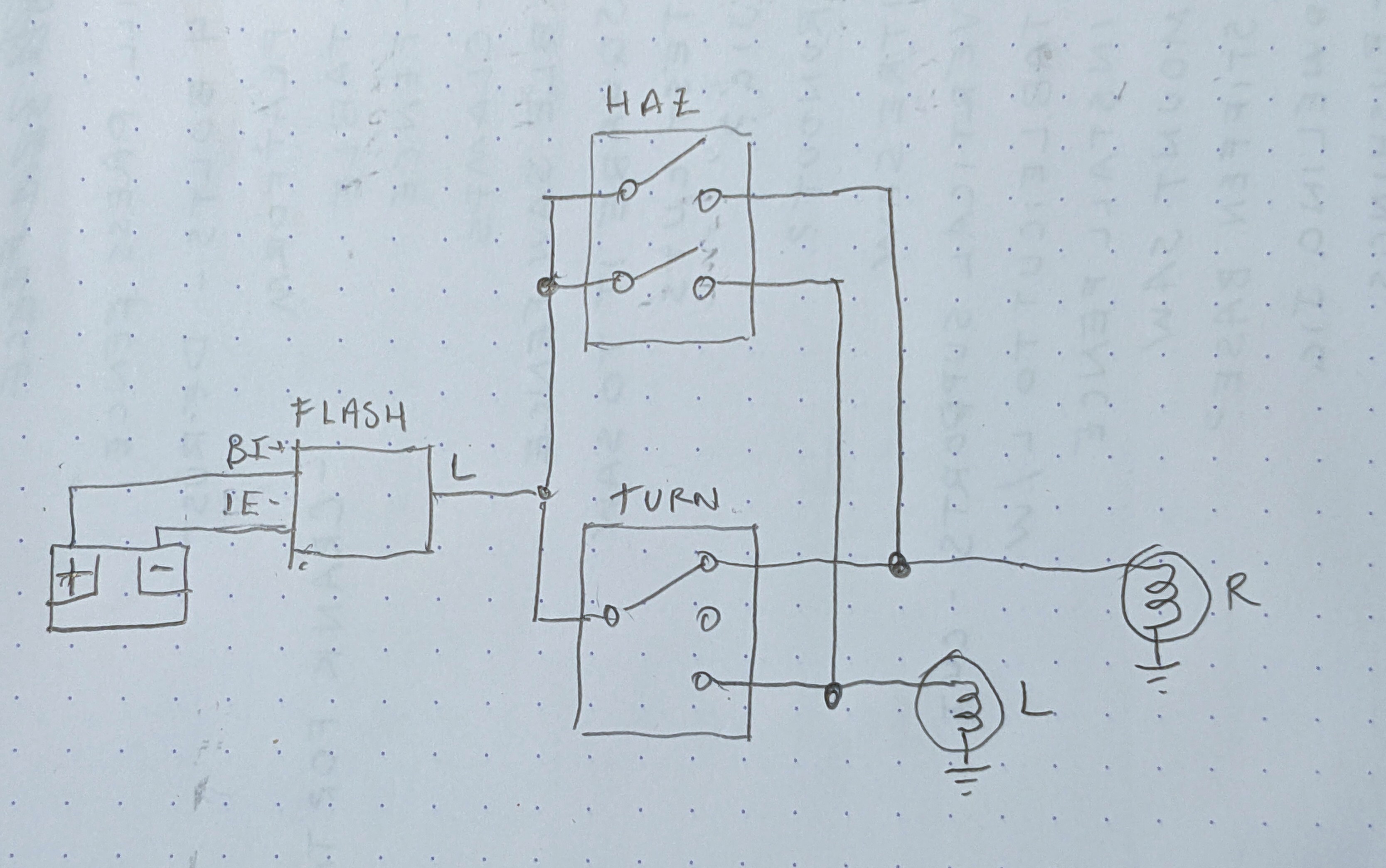This (fairly simple) diagram shows one way.
http://www.mgb-stuff.org.uk/images/haz3.jpg
You have the hazard switch which, when engaged, connects both L and R to the flasher circuit and disconnects the indicator switch. The turn indicator switch is either off or it connects left or right to the flasher circuit (via the hazard switch).
The page that this is from has some additional ways to do it.
http://www.mgb-stuff.org.uk/s_hazard.htm
If you are still struggling, let us know how the blinkers are wired and share a wiring diagram if possible?


